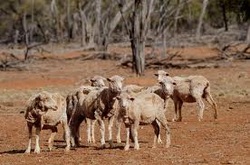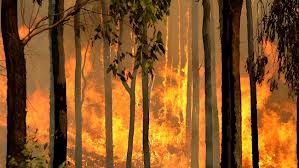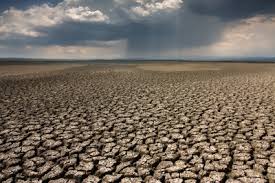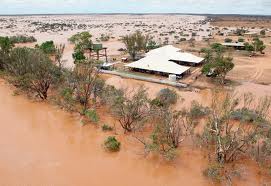
" Farming is an economically and culturally important part of life in Australia."
There are many challenges that face our farmers each and every day, this was something that we didn't realise was happening and how difficult it was for the farmers to overcome until we started doing our research.
Some the challenges faced by farmers include drought, floods, bush fires, salinity, soil erosion, soil acidity, diseases, introduced species ( plants and animals), economy, wool prices and a shortage of workers just to mention a few.
Weather patterns are one particular challenge that farmers deal with each day. It can be unpredictable, extreme and ongoing. Recent conditions have been connected to climate change. With these extreme conditions occurring farmers have weeks/ months/ years with or without rain. This then causes food shortages, affects growth and development, the quality of the fleece, diseases, paddock growth, job opportunities and the economy.
Since 1788 we have had many introduced species make Australia their home. Most
of these have become a hinderance to farmers, killing their stock, destroying fences and competing for food. One animal in particular that is causing extensive damage to farmers flocks is that of the "wild dogs" .
To highlight the damage that is being done Year 6 watched an episode of the 7.30
report that discussed the issue of "Wild Dogs" in Queensland and how they were
killing lambs and ewes. This was quite disturbing and we hadn't actually realised how serious this problem was and the effect it was having on wool farmers.
Queensland farmers are facing problems with wild dogs now this isn't confined to one state, other states are experiencing similar problems.
The number of sheep in QLD alone has dropped from 20 million to 2 million. These
statistics are frightening and suggests that in 10 years if we are lucky our sheep population could be almost extinct. Imagine that, this could have a disasterous effect on the wool industry. Farmers are seriously considering leaving the land as it is becoming too difficult. The stress with losing stock, as well as the financial burden. Some farmers have employed Wild dog hunters to trap and kill these wild dogs. For each skin they can get they paid up to $500
Other ways that farmers have begun to try and protect their ewes and lambs:
* hanging dog trees
* a fence that travels from QLD to Vic trying to stop the dogs getting in( But they are very cunning and still find ways to get in).
* Traps
* Baits
* Alpacas in with the sheep
Through awareness hopefully we will be able to work towards reducing the number of wild dogs and protect our lambs and sheep from being wiped out.
The 7:30 video: http://www.abc.net.au/7.30/content/2013/s3836155.htm
There are many challenges that face our farmers each and every day, this was something that we didn't realise was happening and how difficult it was for the farmers to overcome until we started doing our research.
Some the challenges faced by farmers include drought, floods, bush fires, salinity, soil erosion, soil acidity, diseases, introduced species ( plants and animals), economy, wool prices and a shortage of workers just to mention a few.
Weather patterns are one particular challenge that farmers deal with each day. It can be unpredictable, extreme and ongoing. Recent conditions have been connected to climate change. With these extreme conditions occurring farmers have weeks/ months/ years with or without rain. This then causes food shortages, affects growth and development, the quality of the fleece, diseases, paddock growth, job opportunities and the economy.
Since 1788 we have had many introduced species make Australia their home. Most
of these have become a hinderance to farmers, killing their stock, destroying fences and competing for food. One animal in particular that is causing extensive damage to farmers flocks is that of the "wild dogs" .
To highlight the damage that is being done Year 6 watched an episode of the 7.30
report that discussed the issue of "Wild Dogs" in Queensland and how they were
killing lambs and ewes. This was quite disturbing and we hadn't actually realised how serious this problem was and the effect it was having on wool farmers.
Queensland farmers are facing problems with wild dogs now this isn't confined to one state, other states are experiencing similar problems.
The number of sheep in QLD alone has dropped from 20 million to 2 million. These
statistics are frightening and suggests that in 10 years if we are lucky our sheep population could be almost extinct. Imagine that, this could have a disasterous effect on the wool industry. Farmers are seriously considering leaving the land as it is becoming too difficult. The stress with losing stock, as well as the financial burden. Some farmers have employed Wild dog hunters to trap and kill these wild dogs. For each skin they can get they paid up to $500
Other ways that farmers have begun to try and protect their ewes and lambs:
* hanging dog trees
* a fence that travels from QLD to Vic trying to stop the dogs getting in( But they are very cunning and still find ways to get in).
* Traps
* Baits
* Alpacas in with the sheep
Through awareness hopefully we will be able to work towards reducing the number of wild dogs and protect our lambs and sheep from being wiped out.
The 7:30 video: http://www.abc.net.au/7.30/content/2013/s3836155.htm




